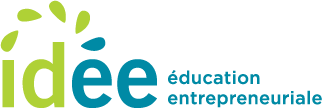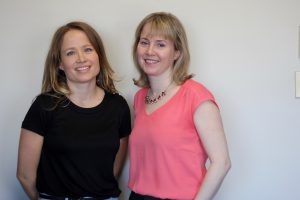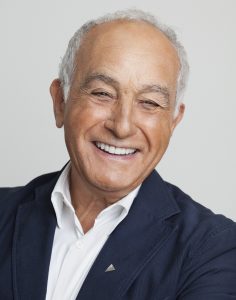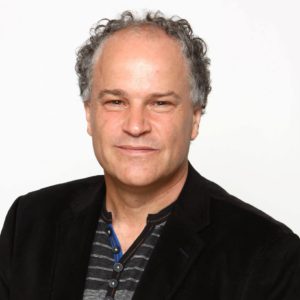L’accompagnement est la clé de voûte au succès d’une transformation réussie de votre école. Offrant un processus rigoureux, méthodique et flexible, nous partons du principe que chaque école est unique et qu’aucune ne part de zéro. Notre équipe personnalise la démarche en fonction de chaque environnement éducatif et de ses besoins pour que votre établissement devienne une école communautaire entrepreneuriale. L’école et sa communauté forment une alliance de sens pour, qu’ensemble, elles portent fièrement leur projet éducatif.
Contributing to reduce school dropout and helping today’s school to be in harmony with its time: possible through the ECEC?
The world in which we live is undergoing an important transition on all levels: social, economical and ecological. We know very well that those transitions absolutely need to come with the emergence of new operational systems. Therefore, people, – fully aware citizens – are seeking new solutions to build a more resilient and blossoming society. Innovative ideas appear, as the result of local initiatives and collaboration efforts from community that progressively implement changes. A worldwide trend, the “transition cities”, supports the collective reconstruction of new viable systems.
“Education is the most powerful weapon we can use to change the world” Nelson Mandela
At the heart of this opportunity for change, education holds a significant place. For Belgium and elsewhere, our education system needs to be reimagined to prepare our youth to become the committed, responsible and conscious citizens that we need to build a more stable, equitable and prosperous world. An increasing number of educational actors are mobilizing in order to bring innovative solutions to counter school dropout, social dependency, inequality and integration difficulties that are omnipresent.
It is against this background of paradigm shift and transition initiatives and mobilization of socioeconomic, cultural and political actors that the Conscious Entrepreneurial Community School (ECEC) comes into play. The ECEC school-system was born in Québec and has been evolving for nearly twenty years to bring an innovative response to such crucial societal issues. The ECEC values the importance of the school community and favours both personal and societal development. This school-transforming model offers a modern, inclusive, responsible and humanist educational path that reveals talents and values the strengths of every students.
“It takes an entire school-community to raise a child and make him happy to come empower himself in school” Rino Levesque
Through the pedagogical and educational approach in conscious entrepreneurship, students learn, from kindergarten to high school, to become more innovative in order to build their lives responsibly and autonomously, while being conscious of their impact on themselves, others and the environment. They learn to be entrepreneurial, to empower themselves and to create innovation. Teachers become coaches of a process initiated by students, who implement conscious entrepreneurial projects, which favour the overall academic learning, and furthermore respond to community needs. A new alliance with the neighbourhood is created where its members collaborate to students’ learning by sharing resources and expertise. Education thus becomes the shared responsibility of teachers, parents and community. Everyone works together for a new social, economical and ecological equilibrium, rooted in the local context.
As of today, there are 134 ECEC throughout three continents, and none of them “wishes to go back”. In Belgium where a growing number of educational actors seeks to help today’s school meeting its numerous challenges, the interest for this school-system is expanding rapidly. In 2013, Step2you, the youth cluster of the ICHEC non-profit organization that has been offering pedagogical tools aimed at exploring students’ potential and revealing their talents for 18 years, signed a partnership with the OIECEC (International Organization of Conscious Entrepreneurial Community Schools) to support the ECC pilot project in Belgium. This partnership falls within the idea that the ECEC is a systemic solution offering at common thread for his actions and those of his pedagogical partners. Since 2014, the Collège La Fraternité, site St-Vincent, in Brussels, is the first one to undertake this educational adventure in Europe, followed by the Centre Asty-Moulin, in Namur, since 2015. Additional schools are following the footsteps, as it is the case for the secondary special education school Sainte-Bernadette. In parallel, Belgian educators are trained by OIECEC-World to become the ECEC facilitators. Positive and enthusiastic feedbacks from schools are validating the relevancy of the ECEC in Belgium. A Belgium ECEC non-profit organization will therefore be created in 2016.
In October 2015, a Belgian delegation, including students, teachers, school principals, counsellors and decision-makers, took part in a mission to visit Conscious entrepreneurial community schools in Quebec. All could witness the positive effects of the ECEC on students, teachers and the entire community. They could observe motivated and fulfilled students, passionate teachers and school principals as well as school in tune with their time and their environment. During the entrepreneurial fair, students from kindergarten to high school demonstrated their creativity as well as their active and positive commitment by presenting their conscious entrepreneurial projects. “With the ECEC, we develop a new citizen which Belgium, Europe and the world need” says Rose Romain, school principal of the Collège La Fraternité, St Vincent, first ECEC of Europe. What these committed educators wish is that students “be eager to come and learn and be proud of their school”. The ECEC offers the adequate structure to create a school spirit, as well as tools and a support method that can adapt to its own environment, culture and rhythm.
In Canada, Morocco, Benin, Ivory Coast and now in Belgium, the ECEC involves people, groups, organizations and entrepreneurs, progressively introducing positive and sustainable changes. As opposed to educational reforms that come from above, the adoption of the ECEC pedagogical model comes from the very will of schools and communities to meet our 21st century challenges. The call is made to these actors sharing the ECEC philosophy to contact ther local ECEC team and implement partnerships in order to bring “Happiness in school”.
“There is nothing stronger than an idea whose time has come” Victor Hugo
Co-writtn by Alexane St-Amant Ringuette, OIECEC intern in Brussels and Sarah Heymans, OIECEC coordinator for Europe and Belgium













1 Comment
Would you like to join the discussion? Feel free to contribute!